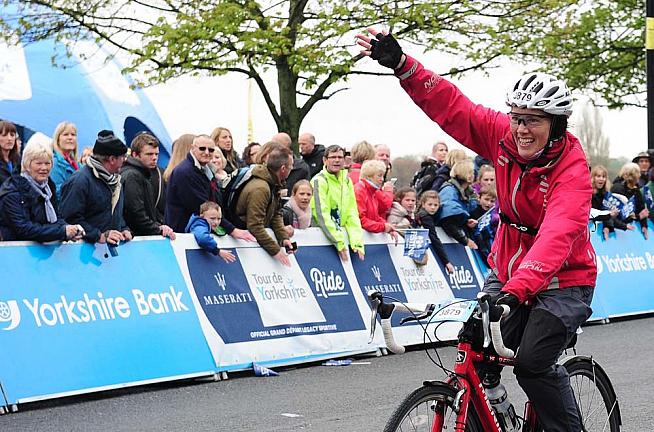Should doctors be prescribing cycling to patients as a way of improving health? A trial is underway in Yorkshire, and after four years the results are positive.
More than 1,000 people have now taken part in Cycle for Health, a ground-breaking referral scheme aimed at boosting their mental health through physical activity across West Yorkshire after being prescribed cycling by health care professionals.
Now in its fourth year of delivery, the scheme is aimed at tackling health inequalities by offering people with long-term conditions a 12-week programme of cycle skills training.
Latest figures show those who took part in the last year showed considerable improvements in mental wellbeing, with people reporting a 32% increase in confidence, a 29% increase in feeling close to others and a 26% increase in feeling relaxed.

The Cycle for Health scheme is delivered by the national cycling charity, Cycling UK, in partnership with the West Yorkshire Combined Authority's CityConnect programme, which encourages more people to travel by bike and on foot.
In the last year, 141 people took part, following referrals from GP surgeries, hospitals, clinical commissioning groups and mental health charities.
Tom Murray, Cycling UK Senior Project Officer, said: "The feedback from people who've been on the scheme is overwhelmingly positive, and over the course of 12 weeks we can see huge improvements in both their physical and mental health.
"It doesn't matter if they could ride a bike before they came to us, our programme teaches them all sorts of skills from learning to ride through to going out in groups, using hand signals, checking for traffic and road positioning. And the confidence that gives them is very often life changing."
Among those who have benefitted is Andrea, who's 47 and from Wakefield. She said the course has been an opportunity to meet people and make friends, even though she has suffered from anxiety, finds it difficult to communicate and tends to withdraw from society.
"I'm more confident," said Andrea. "I'm able to be out with other people more than I would normally. My fitness has improved, my lung function is a lot better than it has been and now I actually want to go out and do other things, and keep cycling, keep active and really start living my life."
Dan, who's 31 and from Featherstone, near Wakefield, developed depression and anxiety after suffering a bereavement.
He said: "You lose enjoyment in life and the things you used to enjoy doing. You stop living, pretty much, and just get very low, not wanting to get out of bed or to do much. It's not a good way to live."
But he added: "You might have a bad week and you've had this to look forward to, and you'd come here and you might feel a little bit low, feel a bit tired, a bit drained but you'd leave it feeling invigorated and energetic. You might be a little bit sore but it's a very positive thing."
Cllr Kim Groves, Chair of the West Yorkshire Combined Authority's Transport Committee, said: "We often hear cycling described as a "magic pill" or "miracle pill", something that can help make people happier and healthier, live longer and cut public health costs, followed by questions about why it's not being prescribed to the nation.
"Our Cycle for Health scheme is leading the way and this demonstrates the scale of our ambition, not only in encouraging more people to travel by bike, but also ensuring our residents are given the tools they need to lead happier, healthier lives.
"What's more, over a third (42%) of the people who've taken part in the scheme during the past year live in some of the most disadvantaged areas in the country, proving schemes like this are helping tackle health inequalities where it matters most."
At the start of the programme, 82% were not meeting the NHS physical activity guidelines of 150 minutes per week, with 31% doing less than 30 minutes a week.
Immediately following the programme the proportion meeting physical activity guidelines rose to 73%, with 61% reporting their fitness had increased.
Figures from the third year show that at the start of the programme nearly all of the participants (more than 82%) reported they did not cycle at all.
Six weeks after the course, more than a third (38%) had at least maintained or increased their level of cycling, each of them cycling on average more than two hours each week.
Perhaps it's time the scheme was rolled out nationwide?
0 Comments





